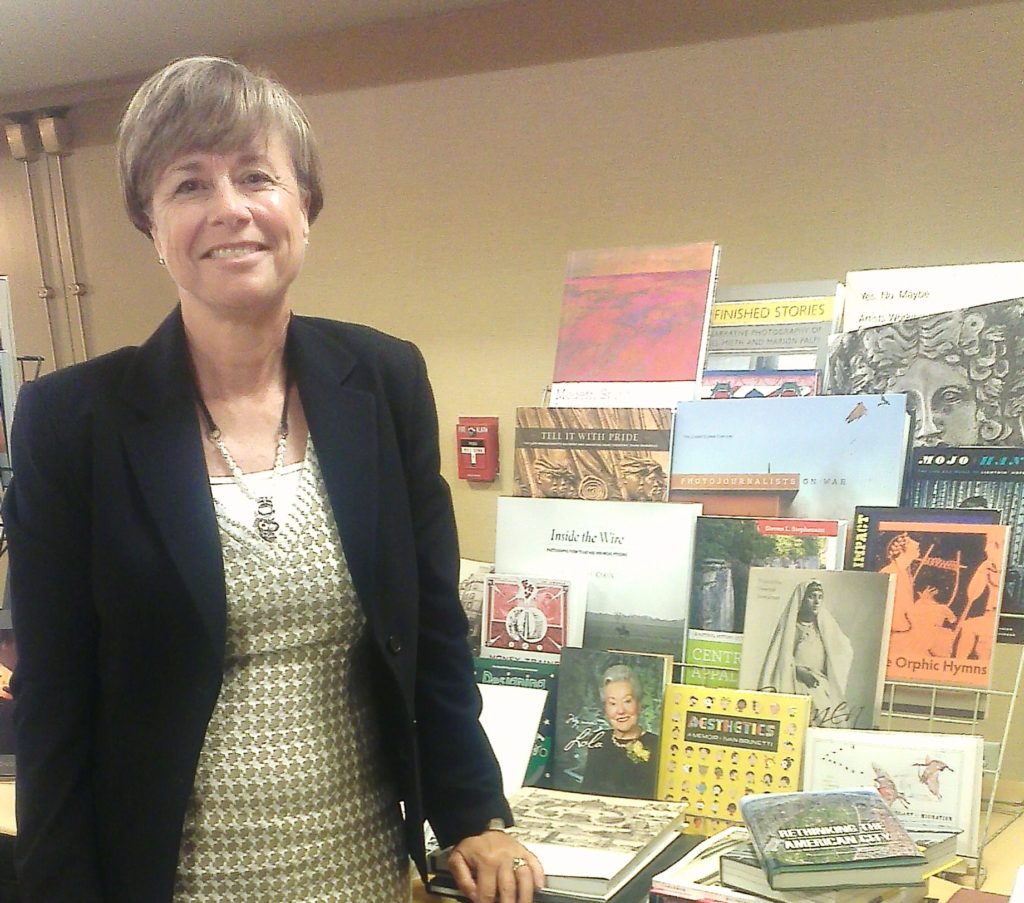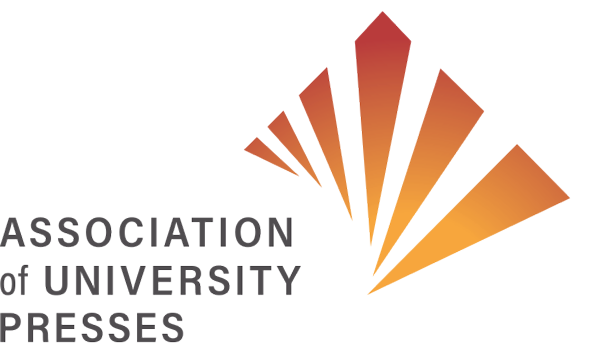Inaugural Presidential Talk
Director, National Academies Press
June 2014

I’m Barbara Kline Pope, your next president of the Association of American University Presses, Executive Director of the National Academies Press, and the facilitator of this session. I’m going to take the next eight minutes to set the stage for our work today.
It’s a tradition that the incoming president of AAUP gives a 30-minute speech about his or her vision for the AAUP during lunch on the last day of the annual meeting. I won’t be doing that this year. We’ve shortened lunch by those 30 minutes, to allow more time for this very significant plenary session. While I enjoy public speaking, what I like even more is getting stuff done.
When I was a kid, I used to sneak into the woods with my dad’s tools—an old hack saw, a well worn hammer, nails, a ball of twine—and some miscellaneous lengths of two-by-fours and warped plywood
My best friend Beth and I would find just the right spot where the hardwood trunks of four trees exactly spanned the length of our plywood. We’d work for days, measuring twice and cutting once, piecing together a not-so-level floor, attaching the walls, and topping it all off with a roof that was sure to leak. Then we’d sit for a few minutes admiring our construction, glad to have a fort, even if there weren’t pitchforks and torches to protect against.
But the doing was the fun of it. We were ‘gettin’ stuff done.’
Years later, I realized that ‘getting stuff done’ was not just fun, but useful. That’s how change happens.
Today, we’re gonna get some more stuff done.
The AAUP is our organization.
All of us are necessary, in order to ensure the AAUP’s vitality, its vigor, its nimbleness, its effectiveness. Today’s session can tap into the power of our very own collective—not in the sense of the power of the Borg from the Star Trek era—but rather the power of diverse individuals, facing similar challenges, coming together for the common good of advancing scholarship.
Today I want to ask us to work together, like Beth and I did all those years ago, not on a fort but this time on evolutionary and revolutionary ideas—ideas that will allow AAUP to soar, in the near future.
Evolution is such a meaningful concept to me, not just because I’ve been steeped in its science over the course of my career at the National Academy of Sciences, but because of the breakneck speed of publishing’s evolution.
We are forced to evolve, because publishing’s background ecosystem is so rapidly changing.
Five years ago, chain stores were in doubt, the Kindle was beginning to ignite, and we acknowledged that this new thing called ‘social media’ was more than a fad.
Ten years ago, “disintermediation” was more than a catchphrase, Google Book Search was called Google Print, and we were confronting companies offering authors web-based self-publishing tools.
Fifteen years ago, the dotcom boom was exploding, and we were facing both the Rocket Ebook reader (remember that?) and the burgeoning consumer Web.
Twenty years ago, before Google, before Amazon, before PDF, the National Academies Press was taking the revolutionary step of making all of its books openly available online, something later called “open access”—which was considered insanity at the time by most publishers.
These pressures pushed all of us to evolve at record pace. And, university presses have successfully adapted to the changing landscape around us, and to the drivers of our parent institutions.
Today, as we reimagine the ways that our Association can rethink its place in the world, I want to be sure we explore options that are both evolutionary and revolutionary.
The planets are aligned for innovation at AAUP. For example, we have a forward-thinking new executive director, in Peter Berkery. Over the last year, I’ve witnessed his high energy, exceptional judgment, keen wit, and practiced wisdom, which will take us far institutionally.
And, there is a new culture of inclusiveness at the AAUP, represented by me standing here today as your new president.
The National Academies Press is officially an Associate member. There is no “U” in our name.
Just seven years ago, I would have been considered sort of like the non-planet Pluto—that is, not fully part of the AAUP’s planetary system. Back then, I would not have been invited to be on the board or elected as president. But the AAUP evolved, thankfully for me.
And, my sense is that other stakeholders in the scholarly communication realm (librarians, scholarly societies, educational institutions) are now ready to actively collaborate on our shared mission to bring scholarship to light—and ultimately, to make a positive impact on humankind. That’s the real endgame, right? To make a positive impact on the world?
Because of the thoughtful leadership of so many earlier Boards, earlier Presidents, and our last Executive Director, Peter Givler, we are well-positioned to make that kind of positive impact on our world. We are truly, in Isaac Newton’s words, “standing on the shoulders of giants.” We can accomplish far more, in the next five years, because of the smart strategies of the last fifteen.
Earlier, I said that “gettin’ stuff done” was part of the goal for this session. And that’s where we are now.
Soon we will get down to the nitty-gritty of “tactics.”
Most of us would agree that the AAUP’s overall roles include Collaboration, Advocacy, Research, and Education—and that institutional Infrastructure is a big part. Those roles can be broken down into strategic choices necessary for achieving those goals. You can see these in the document you have at each table.
But without quality tactics, all strategies fail.
We’re hoping that the collective wisdom of all these professional publishers at this plenary session can not only inform AAUP’s Board and the Executive Director, but can excite each of us, as we go back to our home institutions and home Presses, armed with ideas and possibilities. These can lead to “actionable items”… also known as “gettin’ stuff done.”
Let’s get stuff done.
